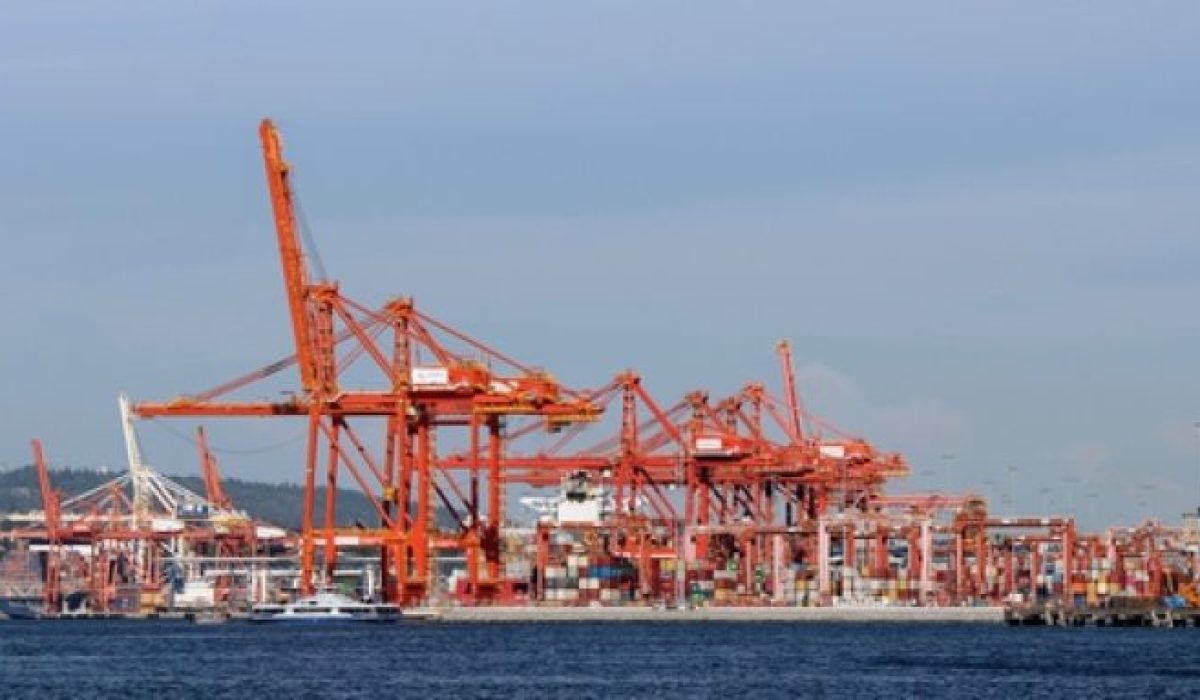As uncertainty hangs over Canada’s rail system being shut down by a strike, shipping lines on the transpacific trade have begun to cancel calls to the country’s main pacific gateways, Vancouver and Prince Rupert.
“Anticipation of a strike keeps carriers on their toes, with some already taking significant action to omit, blank, or swap calls into Vancouver in June and beyond,” an eeSea trade update said.
“There are 14 port swaps and diversions away from Canada into US gateway ports confirmed from week 24 onward, as well as three completed since mid-May,” it added.
Of the forthcoming blank sailings announced through to the end of week 31 and the beginning of August, six are on Zim’s ZPX service, which is now not scheduled to call at Vancouver until at least week 31.
During the same period, MSC’s Chinook, SM Lines’ PNS and THE Alliance’s PN4 service will all blank Vancouver once, as will the Ocean Alliance’s PNW1 and PNW4 strings, and its PNW3 service twice.
“A whopping 10 of these blanks were announced in the past month alone,” eeSea noted.
At Prince Rupert, just three blanks – one each on the THE Alliance’s PN4 and the Ocean Alliance’s PSW2 and PNW2 services – have so far been announced for the period.
The liner analyst added that ports on Canada’s Atlantic coast were expecting just seven blanks – three of are Tropical Shipping’s three-vessel Canada-Caribbean loop, as the 1,150 teu Tropic Lissette has been undergoing scheduled maintenance.
Zim’s CFX, which offers a feeder service from MSC’s Kingston transhipment hub to Miami, New York and Halifax, is also set to blank three sailings during the period, and THE Alliance’s Asia-North America east coast EC5 service is set to blank its sailing in week 31.
“Further delay to the strike action, and/or government intervention, means an indefinite extension of measures taken by carriers to predict this impact, creating a persistent shadow of doubt on the weeks ahead,” eeSea warned.
In happier news for Canadian importers, however, it noted that THE Alliance’s EC5 service had seen a strong improvement in schedule reliability, after “these past few weeks have seen a considerable reshuffling of its vessels and slot assignments”, which had led to delays coming down from a minimum of 20 days on the first (North America) call at Halifax, to “10 days or fewer from last week onwards”.

